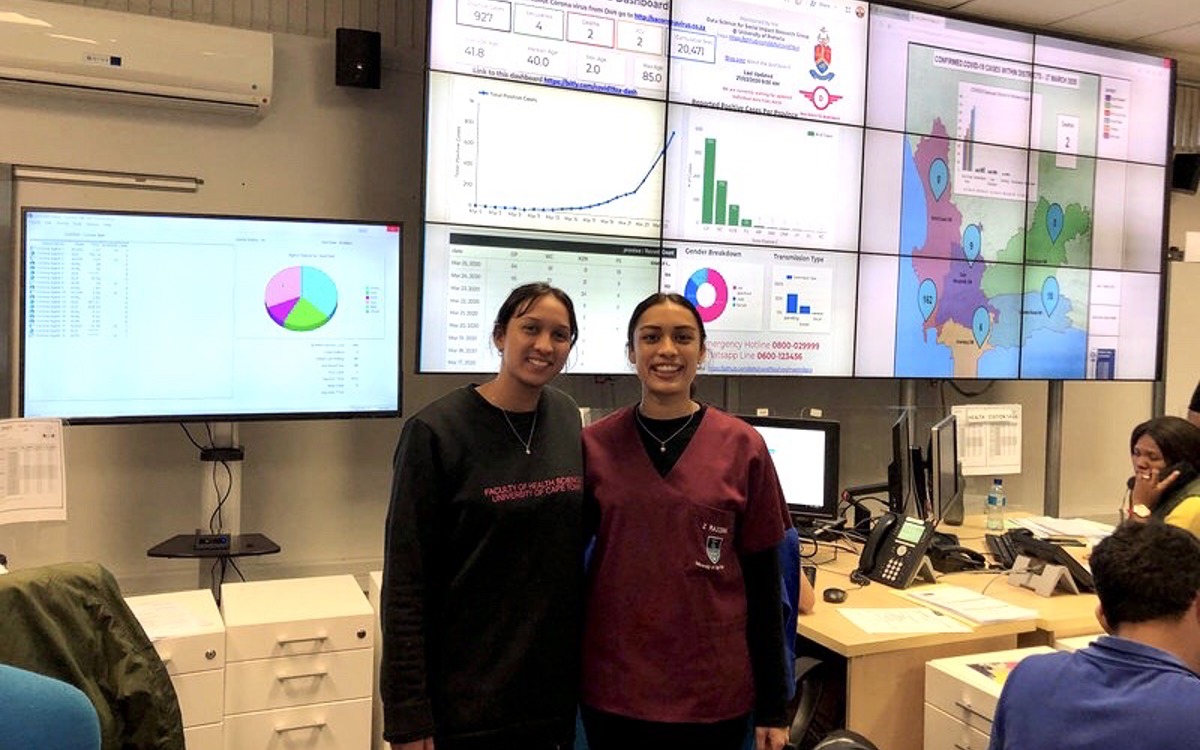
Universities across the Commonwealth are on the front line in the battle against coronavirus. Together, the higher education sector is spearheading vital medical research into a possible vaccine, providing much-needed breathing aids, developing diagnostic tools, researching genome sequencing and more. To showcase all the ways our member universities are helping in the fight against COVID-19, the ACU recently launched the #HigherEdTogether campaign.
Read on to hear about just some of the ongoing, magnificent work of ACU member universities in supporting the battle against coronavirus and their efforts supporting health services and local communities through the pandemic.
The race to find a cure
Around the world, dozens of university research teams are working tirelessly in pursuit of a vaccine for COVID-19. Last week, researchers at the University of Oxford started the first human trial in Europe of a coronavirus vaccine. Oxford academics are also coordinating the world’s largest randomised clinical trial of potential treatments. At The University of Edinburgh, a scientist is leading a £5 million study to increase understanding of how coronavirus affects the body, collecting samples and data from 1,300 coronavirus patients to inform how to best treat the disease.
New breathing devices
One of the biggest challenges facing health systems during the epidemic is a lack of ventilators. For low-income countries, the situation is even more serious given the high cost of this vital equipment with a standard ventilator costing at least $25,000 on the international market. To help solve this global challenge, Makerere University has teamed up with Kiira Motors in Uganda to develop a prototype for a new low-cost ventilator. Students at Kenyatta University have also unveiled a prototype ventilator to help boost ICU capacity. At the University College London (UCL), engineering academics have collaborated with Formula One to rapidly develop a breathing device for patients who don’t need a ventilator – meaning ventilators can be saved for those who need them most.
Rapid genome sequencing
Following a £20 million investment, a genome sequencing alliance has been formed in the UK to help understand and control the spread of coronavirus. Led by the University of Cambridge, the COVID-19 Genomics UK Consortium is made up of the NHS, public health agencies, the Wellcome Sanger Institute and numerous ACU member institutions including the universities of Birmingham, Cardiff, Exeter, Glasgow, Nottingham, Oxford, Sheffield and UCL. The genetic code could arm public health agencies and clinicians with a cutting-edge tool to combat COVID-19.
Preventing the spread of the virus
University research teams are looking into new methods for coronavirus testing and how to curb its spread. The Universities of Asia Pacific, West Indies, Namibia, Venda, Stellenbosch and Mandela University - to name a few - have utilised their labs to produce urgently needed hand sanitiser to prevent the spread of infections.
King’s College London has launched a new free app which tracks symptoms related to COVID-19, allowing users to self-report on their health and track the spread of the illness. The University of Botswana has developed computer software tools featuring a live tracking dashboard, to help the government manage the pandemic.
In Canada, the University of Waterloo is trialling a new approach to testing for coronavirus, using Artificial intelligence and chest X-rays and researchers at McMaster University have developed a home-based test that can tell people in half an hour if they have COVID-19. Working similarly to a home pregnancy test, once approved it could be ready to manufacture within months.
Supporting health services
Universities are providing support to health services - donating vital equipment and boosting their workforces through fast-tracked medical students. At Glasgow Caledonian University, for example, 500 final year nursing students have joined NHS Scotland’s national emergency response. The Universities of Johannesburg and Stellenbosch have been 3D printing protective visors and the University Guelph is donating 10,000 masks and other vital PPE to protect healthcare workers on the frontline. The University of East London is providing free rooms for NHS staff and Swansea University has made its clinical training laboratories available to the NHS, amongst other initiatives.
Supporting the community
Universities have been doing all they can to support people’s health and wellbeing through this challenging time. In South Africa, The University of Free State has launched a #WellbeingWarriors campaign to help students combat COVID-19 anxiety and at the University of Cape Town, over 100 medical students are staffing a volunteer COVID-19 hotline to support the rising number of calls from the public. At the University of Otago, students can register with Ask Otago to request daily phone calls to check in with how they are doing.
Many institutions have also been providing financial support, including the University of Waterloo who set up an emergency support fund for students and Delhi University who’s staff all contributed one day’s salary to the national COVID-19 relief fund.
Informing the global conversation
In the face of high levels of misinformation circulating online, universities are harnessing their collective resources and research to inform the public and policymakers in the wake of the outbreak. At the University of Toronto, a researcher has launched a social media broadcast to highlight how COVID-19 is disproportionately affecting vulnerable communities. The University of Melbourne has also launched a six-part web series to provide a forum for discussing major coronavirus issues facing the world, including its likely impact on future society.
- Follow more stories on the vital work of our universities and join the campaign using: #HigherEdTogether
- Discover more about our members
Image credit: University of Cape Town
